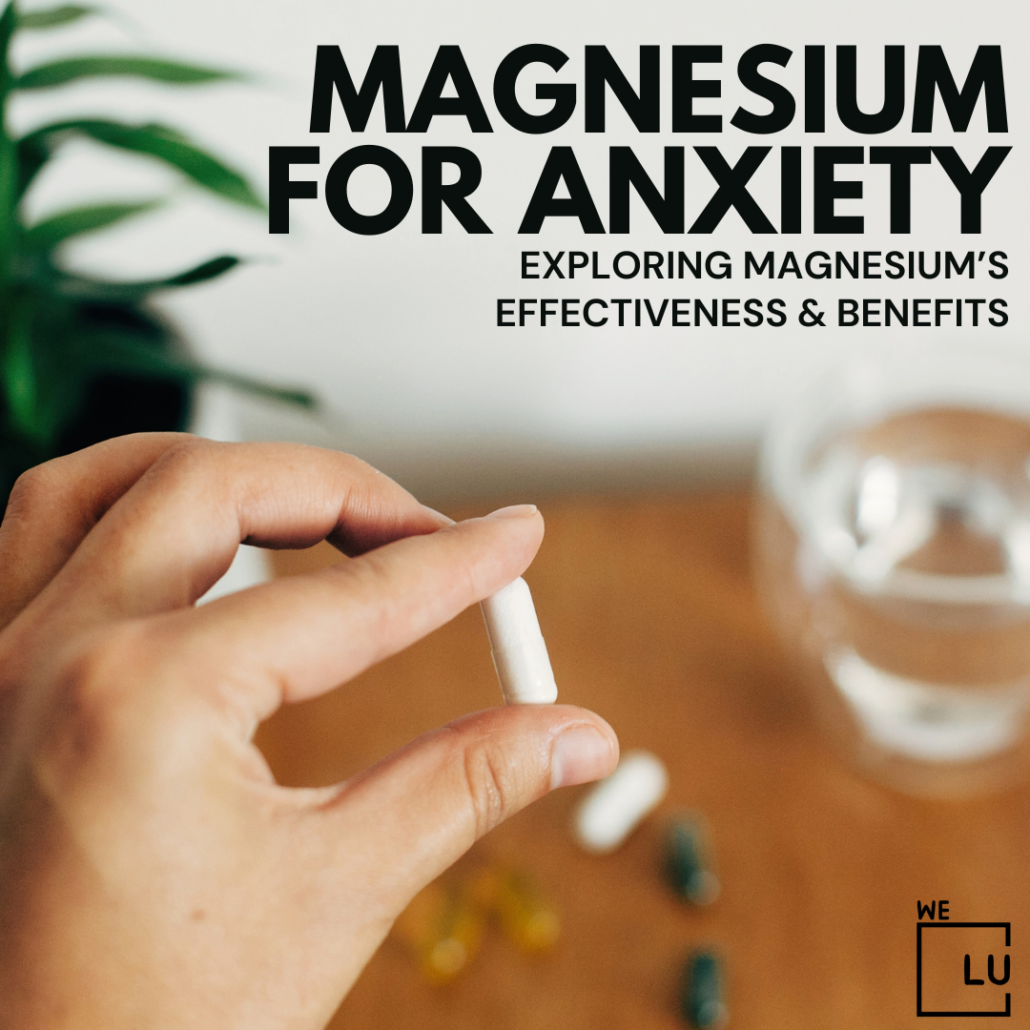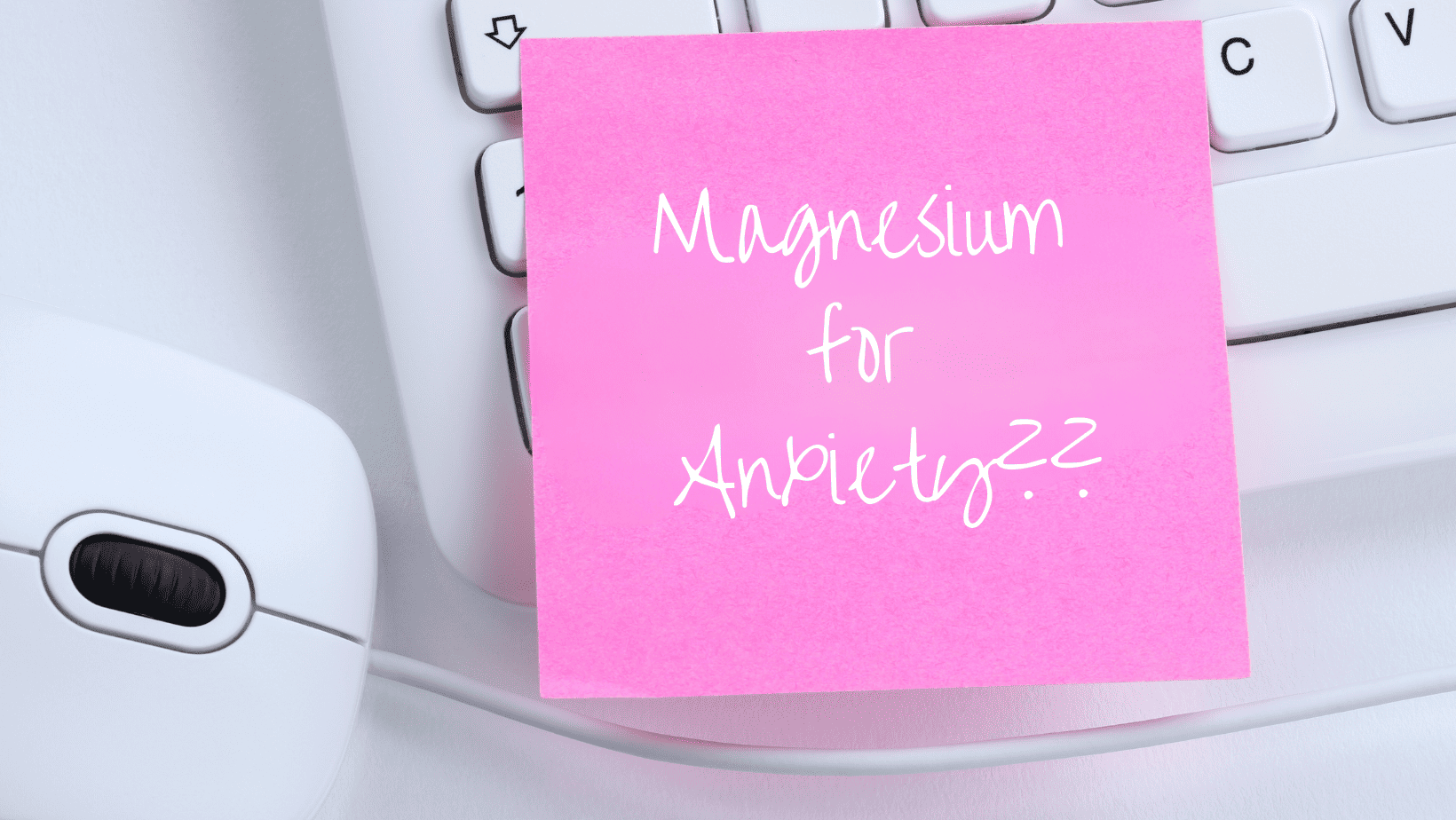How Long Does Magnesium Take To Work For Anxiety

Anxiety gripping your life? Many are turning to magnesium, but the burning question remains: how long does it take to work?
The answer isn't a simple one, varying significantly based on individual factors and the type of magnesium used, so here's what you need to know.
Magnesium for Anxiety: The Timeline Breakdown
The timeframe for experiencing noticeable anxiety relief with magnesium varies widely.
Some individuals report feeling calmer within a week, while others may require several weeks or even months to see a significant difference.
This delay is often due to the body's need to replenish depleted magnesium stores and for the mineral to exert its effects on neurotransmitter function.
Factors Influencing Magnesium's Effectiveness
Several factors play a crucial role in determining how quickly magnesium begins to alleviate anxiety symptoms.
These include the severity of the anxiety, individual metabolism, diet, lifestyle, and the specific type of magnesium supplement used.
Existing magnesium deficiency, often undiagnosed, significantly impacts the time it takes to restore optimal levels and experience benefits.
Magnesium Types: Absorption Matters
The form of magnesium supplement plays a vital role in its absorption rate and subsequent effectiveness.
Magnesium glycinate is often recommended for anxiety due to its high bioavailability and gentle effect on the digestive system.
Other forms, such as magnesium oxide, have lower absorption rates and may cause gastrointestinal distress, hindering their effectiveness.
Dosage and Consistency are Key
The appropriate dosage of magnesium is crucial for achieving desired results.
Consulting with a healthcare professional is recommended to determine the optimal dosage based on individual needs and health conditions.
Consistency is paramount; regular, daily supplementation is necessary to maintain adequate magnesium levels and sustain its anxiolytic effects.
What the Research Says
Several studies have explored the link between magnesium and anxiety.
A 2017 review published in Nutrients suggested that magnesium supplementation could reduce anxiety symptoms, but emphasized the need for more large-scale, randomized controlled trials.
Other research has highlighted magnesium's role in regulating the hypothalamic-pituitary-adrenal (HPA) axis, which is central to the body's stress response.
Real-World Experiences: Anecdotal Evidence
Online forums and support groups are filled with anecdotal reports from individuals who have used magnesium for anxiety.
Some users report feeling a noticeable reduction in anxiety symptoms within a few days of starting supplementation, while others experience a more gradual improvement over several weeks.
However, it's important to remember that anecdotal evidence is not a substitute for scientific research.
Potential Side Effects and Precautions
While magnesium is generally considered safe, some individuals may experience side effects such as diarrhea, nausea, or abdominal cramping.
These side effects are more common with higher doses or certain forms of magnesium, such as magnesium oxide.
Individuals with kidney problems should consult with a healthcare professional before taking magnesium supplements, as it can potentially worsen their condition.
When to Seek Professional Help
Magnesium supplementation should not be considered a replacement for professional medical advice or treatment for anxiety disorders.
If anxiety symptoms are severe or persistent, it is essential to seek help from a qualified healthcare professional.
A doctor can properly diagnose the underlying cause of anxiety and recommend appropriate treatment options, which may include therapy, medication, or lifestyle changes.
The Bottom Line: Patience and Persistence
While the exact timeframe for magnesium to work for anxiety varies, patience and persistence are key.
Expect to wait at least a few weeks to see noticeable improvements, and ensure you're using a highly absorbable form of magnesium at the correct dosage.
If symptoms persist or worsen, consult a healthcare professional to explore other treatment options.
Next Steps: Monitoring and Adjustments
Keep a symptom journal to track your anxiety levels and any changes you experience after starting magnesium supplementation.
This will help you and your healthcare provider assess the effectiveness of magnesium and make any necessary adjustments to dosage or treatment plan.
Ongoing research continues to explore the potential benefits of magnesium for anxiety and other mental health conditions.


















